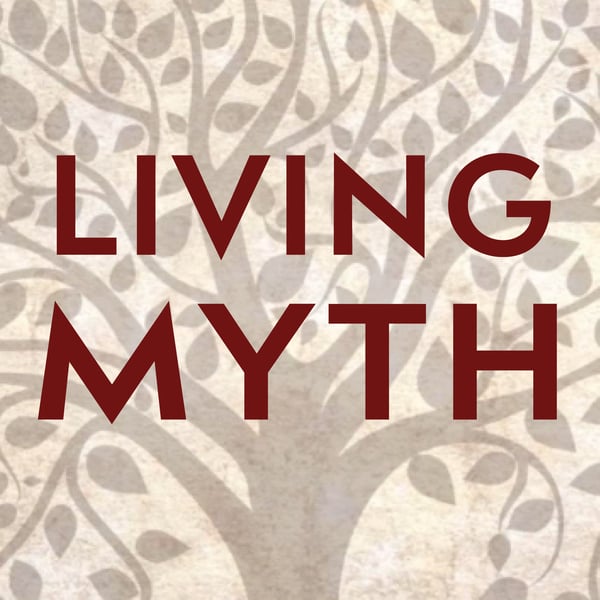Episode 411 - The Necessity of Gratitude
Living Myth
Michael Meade
4.9 • 944 Ratings
🗓️ 26 November 2024
⏱️ 39 minutes
🧾️ Download transcript
Summary
Michael Meade answers questions about the sources and meanings of grace and gratitude. Gratitude used to be called the “parent of all virtues” and its presence indicates the natural nobility of the human soul.
We are most human and most alive when we allow ourselves to be touched by the beauty of the world and when we feel genuine gratitude for the life we have been given, no matter how hard or how dark the world around us has become. In this way, expressing gratitude helps to bring grace back into the world.
More than ever, we need moments of wholeness and unity to rekindle our spirits and to ease our souls. We need occasions of grace and gratitude, however small they may be. We need to feel that life, despite all the existing divisions and conflicts, retains a sense of holiness, so that occasions of gratitude, however small they may be, can enable more grace to enter the world.
Thank you for listening to and supporting Living Myth. You can hear Michael Meade live by joining him for two free online events: “Living Authentically in Uncertain Times” on Thursday, December 5 and his online Solstice ritual “In This Darkness Singing” on Friday, December 20. Register and learn more at mosaicvoices.org/events.
You can further support this podcast by becoming a member of Living Myth Premium. Members receive bonus episodes each month, access to the full archives of over 700 episodes and a 30% discount on all events, courses and book and audio titles.
Learn more and join this community of listeners at patreon.com/livingmyth.
If you enjoy this podcast, we appreciate you leaving a review wherever you listen and sharing it with your friends. On behalf of Michael Meade and the whole Mosaic staff, we wish you well and thank you for your support of our work.
Transcript
Click on a timestamp to play from that location
| 0:00.0 | Welcome to the Living Myth podcast with Michael Mead, |
| 0:12.0 | where this shifting, changing world is looked at from a mythic perspective. |
| 0:18.9 | On this episode, Mead answers questions about the sources and meanings |
| 0:23.7 | of grace and gratitude. Gratitude used to be called the parent of all virtues, and its presence |
| 0:30.9 | indicates the natural nobility of the human soul. We are most human and most alive when we allow ourselves to be touched by the beauty of the |
| 0:40.0 | world, and when we feel genuine gratitude for the life we have been given, no matter how hard |
| 0:46.5 | or how dark the world around us has become. In this way, expressing gratitude helps to bring grace back into the world. How is gratitude and grace or how are gratitude and grace related to courage, justice, mercy, and peace? |
| 1:24.2 | Well, let's see. I think they're different than courage, certainly than justice. So one of the great things about mythology and myth, mythical systems, is they give, they have spirits or deities, gods, and goddesses representing the various energies in the world. |
| 1:46.0 | People misunderstand that cultures that had many deities didn't, it didn't mean that they didn't understand |
| 1:53.0 | that everything was at some essential level united or everything was one. |
| 1:59.0 | But we live in the realm of the one and the many. |
| 2:02.6 | And so I think those things are related, gratitude and grace, related to courage, justice, |
| 2:11.6 | you know, because they're part of this mythos, this psychological, mythological realm. Mercy and peace can be seen to be |
| 2:20.6 | much closer, the gratitude and grace. So let me just go back to these deities. One of my favorite |
| 2:29.2 | deities is Kuan Yin. Kuan Yin is the goddess of mercy and peace, but also forgiveness and grace. |
| 2:39.4 | And so it's not that there is a Kuanian, it's not about history, it's not about believing in things, |
| 2:47.0 | it's just like the imagination of it. So I have, when you enter my house, you pass by two statues of Kuan Yin. |
| 2:57.6 | So every time I go out, every time I go in, I'm reminding myself of mercy, peace, and grace. And so imagine ancient people lived that way. They had rituals and they had |
| 3:13.6 | deities. And it wasn't that they were foolish and they didn't know how to measure things. |
| 3:19.8 | It was more that they had a living internal life and they knew how to imagine things. |
| 3:25.3 | So I don't know, courage has to do with heart in a way, but the heart does many, many |
| 3:31.7 | things. |
... |
Please login to see the full transcript.
Disclaimer: The podcast and artwork embedded on this page are from Michael Meade, and are the property of its owner and not affiliated with or endorsed by Tapesearch.
Generated transcripts are the property of Michael Meade and are distributed freely under the Fair Use doctrine. Transcripts generated by Tapesearch are not guaranteed to be accurate.
Copyright © Tapesearch 2025.

